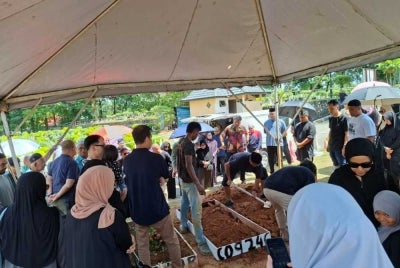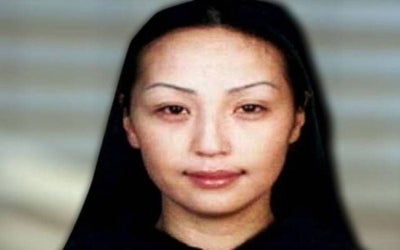Childbirth negligence: High Court awards mother, four-year-old girl more than RM8 mil
05 Jul 2023 09:07pm

For illustration purpose
In the grounds of judgemen issued on April 17, this year, Judicial Commissioner Roz Mawar Rozain made a decision after the government confirmed the admission of liability for all the plaintiff's claims with damages and costs.
In November 2020, the woman, who had a high-risk obstetric history, and her daughter, as the plaintiffs, filed a suit against the government and eight individuals, comprising medical officers and staff, as the defendants for medical negligence.
However, on Jan 28, 2022, the High Court recorded a consent judgement that confirmed the admission of liability by the government and the plaintiffs withdrawn the suit against other defendants with no order as to costs.
Roz Mawar awarded both plaintiffs RM209,172 for special damages and general damages of RM500,000 to the first plaintiff (the child) and RM114,000 to the mother.
"Both the plaintiffs are awarded aggravated damages in the sum of RM350,000. For future general damages, the first plaintiff is awarded a total of RM6,954,156 for 40 years. This court finds that a reasonable amount because, on average, her care amounts to RM173,853.90 per year. The court also ordered RM215,177.25 for costs,” she said.
In her judgement, Roz Mawar said it was indeed an expensive lesson for the defendant to learn, but the amount could repair the damage done to the first plaintiff.
"She will never have a taste of any decent normal living. The pain and suffering also extends to the second plaintiff and the rest of her family. The amount of damages awarded may, at first instance, look like a fortune, but when employed according to this court's order, it would only ensure some convenience for her survival,” she said.
According to Roz Mawar, this was a tragic case where the first plaintiff suffered severe and irreversible brain damage at birth on March 17, 2019 at the government hospital, and the second plaintiff, who had a high-risk obstetric history and was initially planned to undergo an emergency lower segment caesarean section on March 18, 2019 to birth the first plaintiff.
"By 8 pm on March 17, 2019, the first plaintiff in utero showed signs and symptoms of bradycardia. Despite detecting that, a delayed decision was made at 9.20 pm for the second plaintiff to undergo an emergency caesarean.
"Nonetheless, further delay followed before the first plaintiff was delivered at 10.14 pm. It was noted at birth that the first plaintiff suffered hypoxic-ischemic encephalopathy and its sequelae, including severe brain damage. The second plaintiff suffered an exacerbation of her major depressive disorder.
"Her child suffers from spastic quadriplegic cerebral palsy secondary to hypoxic-ischemic encephalopathy with a developmental milestone of less than three months old as a result of negligence due to delay instead of acting promptly and accordingly to the accepted procedures at the hospital,” she said.
In deciding the quantum of the award, Roz Mawar said both the second plaintiff and her husband are the main carers for the first plaintiff.
"In addition to caring for the first plaintiff, the second plaintiff and her husband also care for his nine-year-old son and their seven-year-old daughter, who was born with a congenital condition of lung fibrosis. The husband is a technician who has been out of work as a result of his slipped disc.
"The first plaintiff, who is now four years old, has not grown normally and will not be normal. She needs around-the-clock care as she is unable to attend to her bodily functions herself. She requires help and care with feedings, bathing, cleaning up after herself, and wiping her saliva. Her oral hygiene needs to be taken care of to avoid infection.
"The first plaintiff has weak muscles; she is unable to sit or stand on her own. She is unable to communicate and does not show any comprehension of her surroundings. According to the second plaintiff, the first plaintiff also does not cry. The first plaintiff needs to be fed through a tube three hourly," she said in her 29-page judgement.
Meanwhile, the duo’s counsel, Karthi Kanthabalan, when contacted today, confirmed the decision and told that the government had filed an appeal on the decision.- BERNAMA
Download Sinar Daily application.Click Here!














